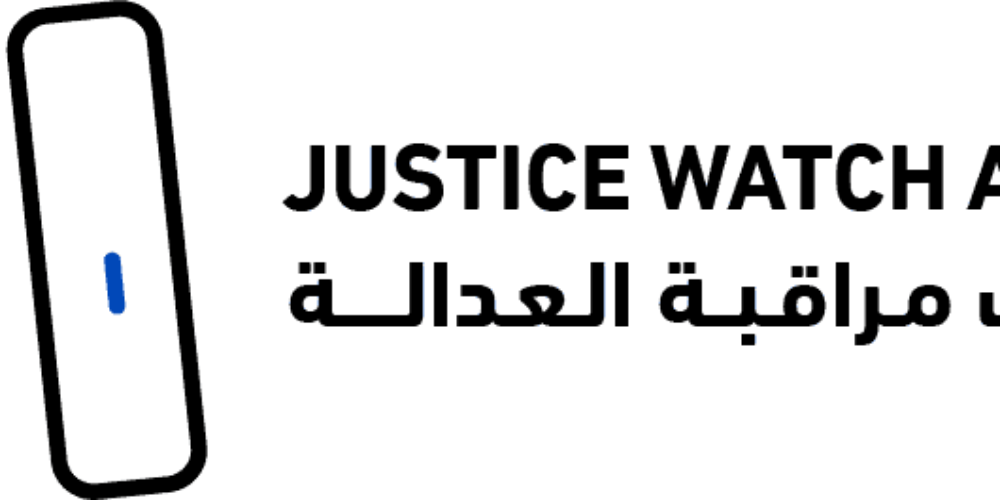Media statement
Geneva- Wednesday 3 June 2020
Committee for Justice announces the launching of ‘Justice Watch Archive’ to enable human rights actors in Egypt and the international community to have direct access to data and information that the organization has been able to document and verify about the human rights situation in Egypt.
Since Committee for justice has been founded and its vision, mission, and strategic goals have been defined, it focused its efforts on documenting and verifying violations by pillars of the justice system- authorities of detention, investigation and prosecution, the penal and reform system, in addition to the legal environment and policies and practices related to the justice system.
CFJ and workers in the human rights field in Egypt face several obstacles related to information and data on human rights violations, their supporting documents and evidence, and the lack of official data, statistics, and information system at the Egyptian state.
To address this problem, CFJ held a number of workshops and discussion sessions, between 2016 and 2019, with local and international partners and consultants in the human right and digital security fields. Meanwhile, it coordinated a number of workshops to draw on previous experiences in similar attempts.
In response to the concluded results of these workshops and meetings, which included a recommendation to unify statistics and data, the organization worked since 2018 on testing a number of digital tools and platforms to choose the best and most relevant system out of them. Eventually, we selected Uwazi platform which is provided by HURIDOC organization.
This project, ‘Justice Watch Archive’, is the product of the experimental phase of Uwazi tool, which is an innovative and secure platform dedicated to organizing, analysing, and processing data and information to produce statistics and patterns of human rights abuses in Egypt, particularly deaths inside prisons and places of detention and violations of fair trial procedures.
Through this platform, CFJ aims to raise awareness of patterns of human rights violations, to introduce the victims, to provide new tools to support them and their families as well as human rights defenders and civil society organizations in their ongoing struggle and to fulfil their hopes of reaching truth and justice.
In light of the organization’s policy of fighting impunity as a tool for transitional justice and handling the past, we are launching this trial version of ‘Justice Watch Archive’ to begin a new phase of the work on monitoring human rights violations in Egypt, a stage which is relevant to justice conditions and making information available to the public and the specialists, which we believe will significantly help in delivering and verifying the information, identify the victims closely and showing their own narratives, and, thus, shedding more light on the perpetrators and the places where they have committed their crimes” says Ahmed Mefreh, the Executive Director of Committee for Justice.
Also, by ‘Justice Watch Archive’, the organization aims to expand the scope of joint action to preserve the documentary archive of human rights organizations and other documentation sources, promote learning, exchange, and participation in implementing archival projects, investigation methods, registering verification, and processing tools of human rights violations, all to strengthen the community of those engaged with transitional justice issues.
Meanwhile, in this way, the organization aims to set itself apart from the culture of random accusations and rather provide analysis and well-reviewed and verified evaluation of the Egyptian authorities’ practices and provide recommendations concerning legislation, policies, and practices for better handling of the human rights file.
Thereof, by launching ‘Justice Watch Archive’ we aim to enable Egypt’s human rights actors and the international community to have direct access to data, information, and documents, in order to perform their roles in an optimal manner. We consider the pilot launching of ‘Justice Watch Archive’ a preliminary step during which we will work on developing and improving it to reach its optimal and most effective model.
By launching ‘Justice Watch Archive’, Committee for Justice aims at:
- Raising awareness on patterns of human rights violations and introducing the victims.
- Provision of new tools to support the victims, their families, human rights defenders, and civil society organizations to pursue their struggle and fulfil their aspirations for truth and justice.
- Expanding joint actions in order to preserve the documentary archive of human rights organizations and other sources of documentation.
- Promoting learning, exchange, and participation in implementing archival projects, investigation methods, registering verification, and processing tools of human rights violations, all to strengthen the community of those engaged with transitional justice issues.
- Enabling comprehensive understanding of the context and circumstances surrounding violations, as well as provision of easy access to a comprehensive database of accurate and verified information about violations; a database that produces plausible analyses and conclusions supported by strong statistical evidence.
- Producing information that contributes to the uncovering of human rights violations and to highlight patterns of these violations, particularly in prisons and places of detention.
- To depart from the culture of random accusations and present an accurate and verified analysis and evaluation of the Egyptian authorities’ practices.






